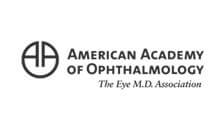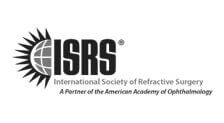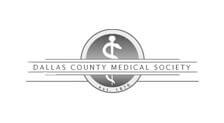
February is Age-Related Macular Degeneration Awareness Month. Also called macular degeneration or AMD, this eye condition is the leading cause of vision loss in older Americans. We believe it’s important to shine a spotlight on this sight-stealing condition, so you know what to look for if you think you might have AMD.
What is Age-Related Macular Degeneration?
Age-related macular degeneration (AMD) is an eye disease that causes central vision loss, impacting more than 11 million people in the U.S. alone.
Specifically, AMD is a deterioration of the eye’s macula, which is the central part of the retina, the light-sensitive tissue at the back of the eye. The macula is more light-sensitive than the rest of the retina and helps the eye focus in detail. Since the macula is only a small part of the retina, AMD does not usually affect peripheral vision. That means your vision on the side won’t be affected, only the vision in the central part of your vision (where you are looking directly).
There are two types of AMD, “dry” and “wet.” The dry form is much more common. With dry AMD, vision loss progresses more slowly. If you’ve been diagnosed with dry AMD, it is critical to keep regular appointments with your ophthalmologist because dry AMD can develop into the more damaging form called wet AMD.
Wet AMD is less common but much more serious than the dry type. Wet AMD occurs when new, abnormal blood vessels grow under the retina. These vessels can leak blood or other fluids, causing scarring of the macula.
What are the Symptoms of AMD?
Be on the lookout for:
Dry AMD:
- Blurred central vision
- Blurry distance and/or near vision
- Need for bright light to see up close
- Colors appear less vivid or bright
- Difficulty seeing when going from bright light to low light
AMD can affect one or both eyes. Sometimes, vision loss in one eye is missed because the other eye compensates, making the vision loss virtually unnoticeable.
Wet AMD:
- Straight lines appear bent, crooked or irregular
- Dark or blank spots in your vision
- Loss of central vision
- Trouble recognizing faces
- Size of objects may appear different for each eye
- Colors lose their brightness or don’t look the same for each eye
Symptoms of wet AMD typically appear and progress more quickly than with Dry AMD.
How Can I Know if I am at Risk for Macular Degeneration?
Just like the name suggests, the older you are, the more at risk you are for developing AMD. Other risk factors include a diet high in saturated fats, being obese, having high blood pressure and smoking. There is a hereditary element as well.
How is AMD Diagnosed?
The earlier stages of AMD don’t usually have symptoms. Because of this, the only way to detect the condition is by having a comprehensive eye exam.
At Carter Eye Center, we do so much more at a comprehensive exam than determine your prescription for glasses or contact lenses. We will evaluate your eyes for any eye disease, assess how your eyes work together and also evaluate your eyes as an indicator of your overall health. Remember, a comprehensive eye exam includes pupil dilation, so plan for a little extra time before driving or returning to work.
Prevention and Treatment of Macular Degeneration
For eye disease prevention, eat a diet full of green, leafy vegetables and wear UV-blocking sunglasses while outdoors. It’s also important to have regular eye exams as AMD can be present for a long time without any symptoms.
Studies show a multivitamin called AREDS2 can slow the progression of dry AMD, but does not prevent one from developing the disease. It should only be taken if recommended by an eye doctor.
To help in the treatment of wet AMD, doctors turn to anti-VEGF medications. These are designed to shrink abnormal blood vessels in the retina and decrease retinal swelling. In certain people, treatment with anti-VEGF may improve vision.
Trust a Vision Specialist
Having regular eye exams with Dr. Harvey Carter is the best way to make sure AMD is detected, monitored and controlled. If you have already been diagnosed with AMD, you will be happy to know that Dr. Carter collaborates with some of the most experienced retina specialists in the Dallas area.
At Carter Eye Center, it is our goal for our patients to enjoy living their lives at the highest level while managing eye disease. Dr. Carter has significant experience in the diagnosis and management of AMD. Schedule a comprehensive eye exam at Carter Eye Center today to protect your sight.









